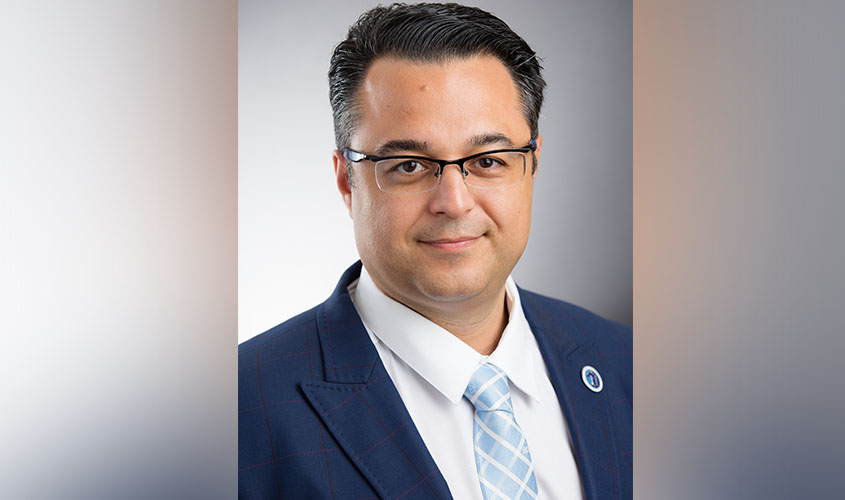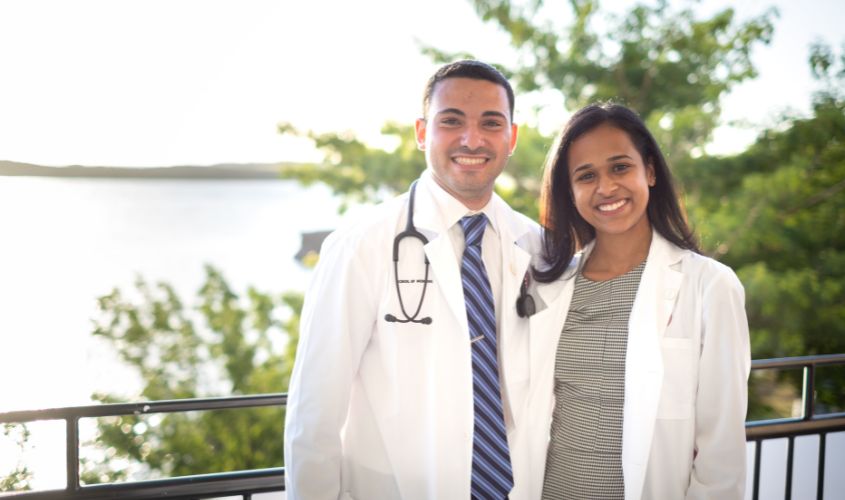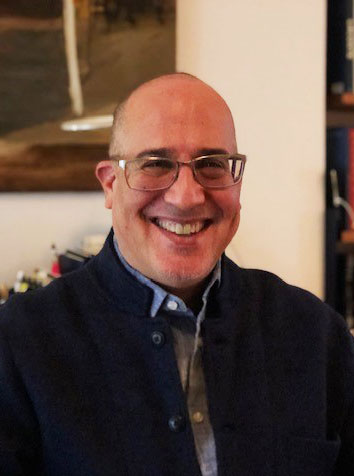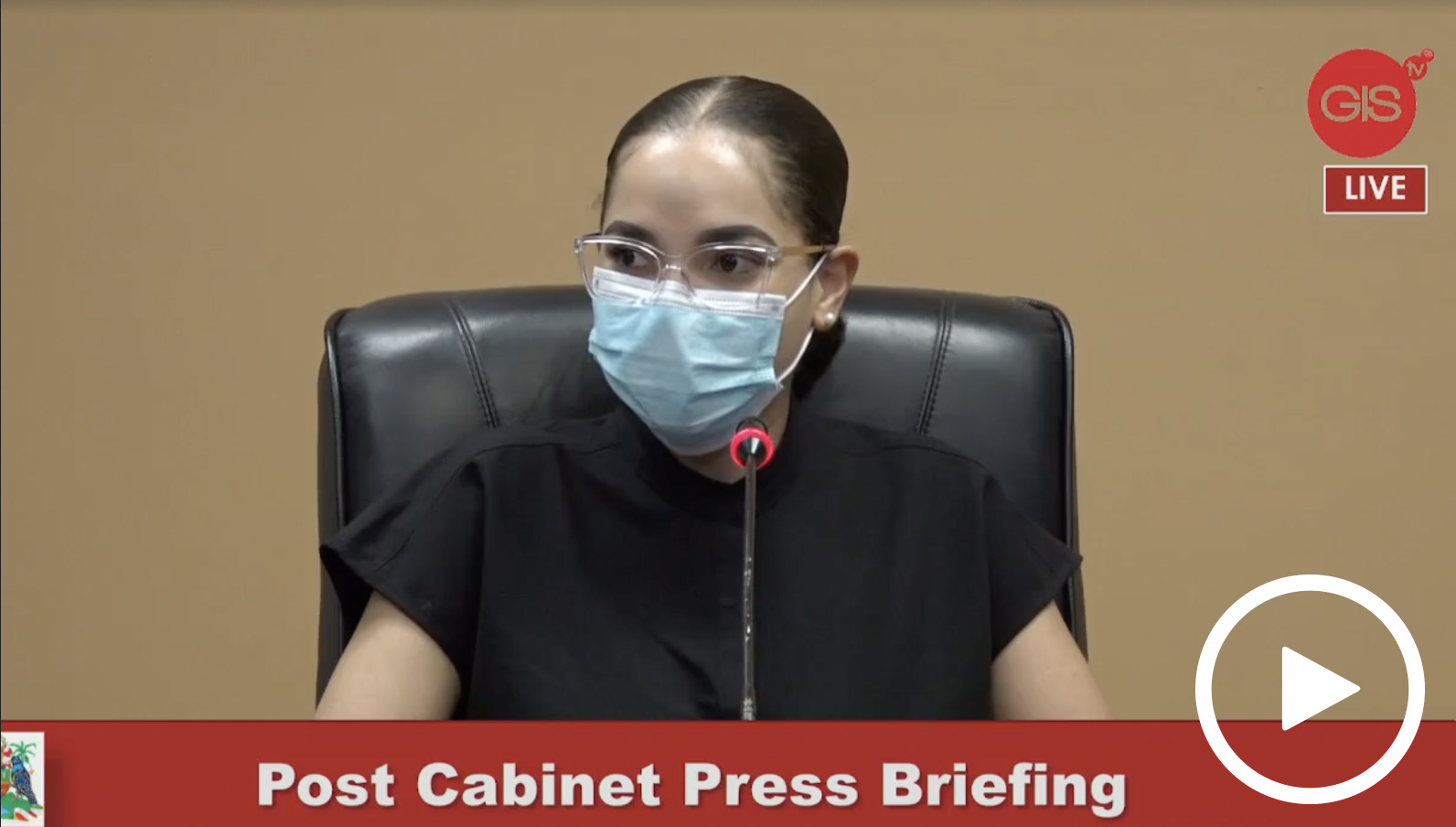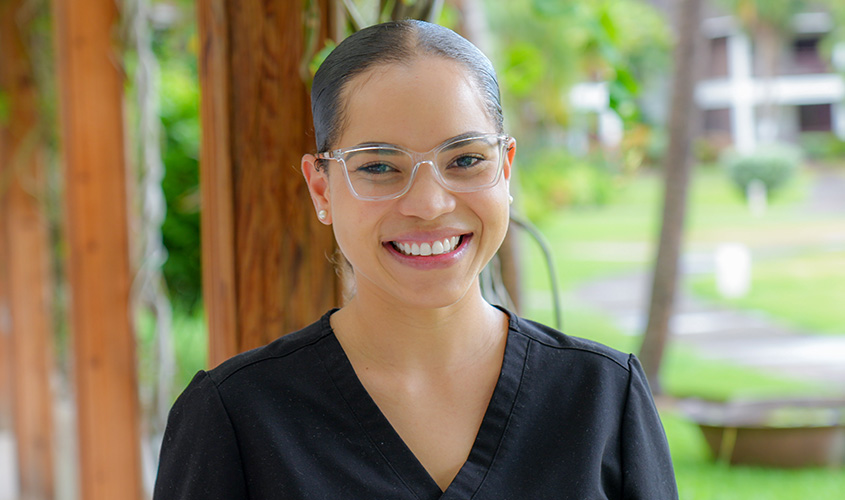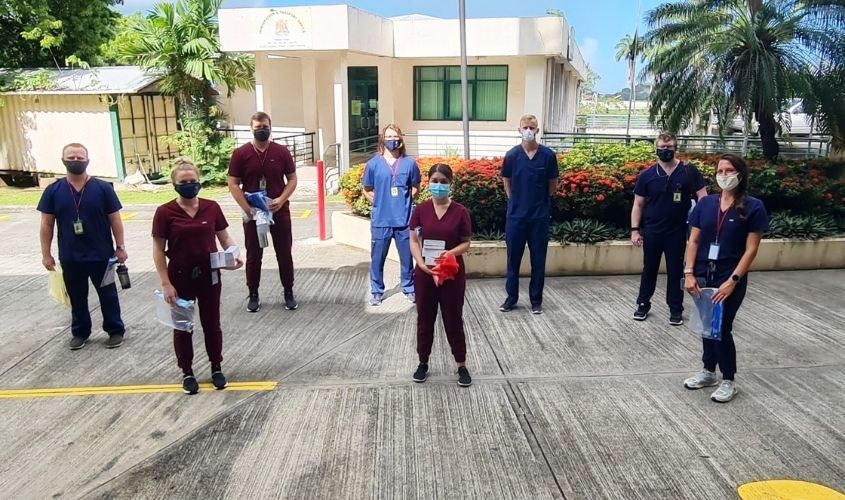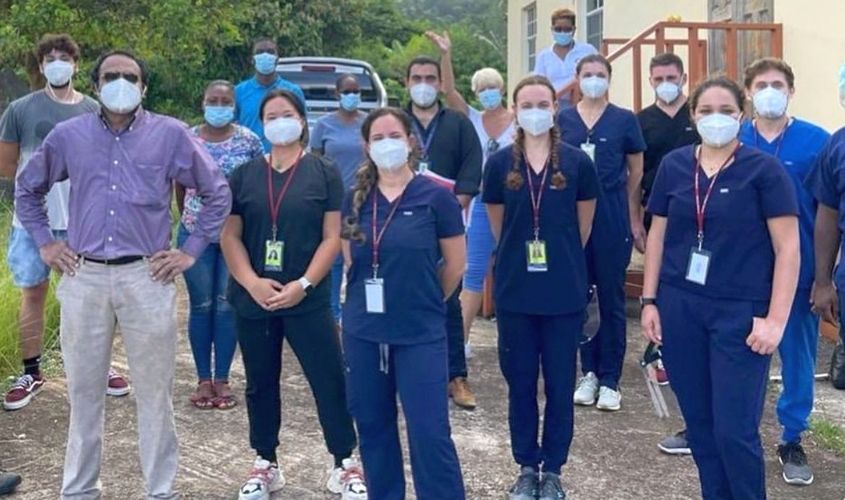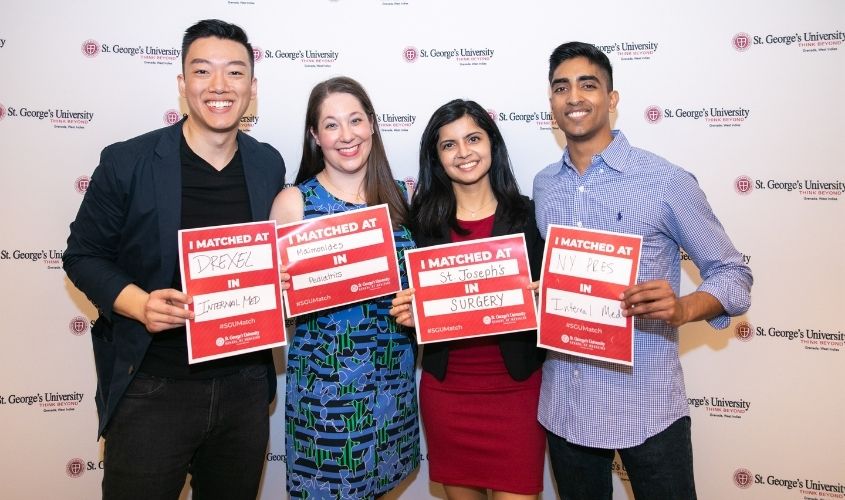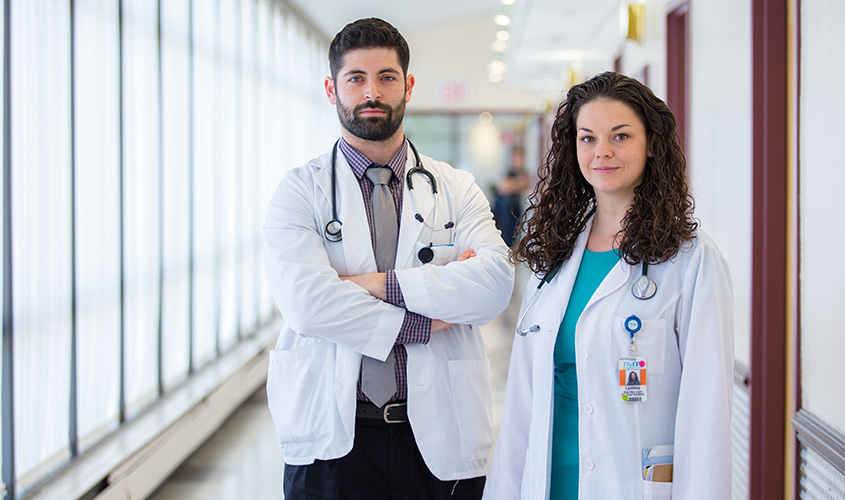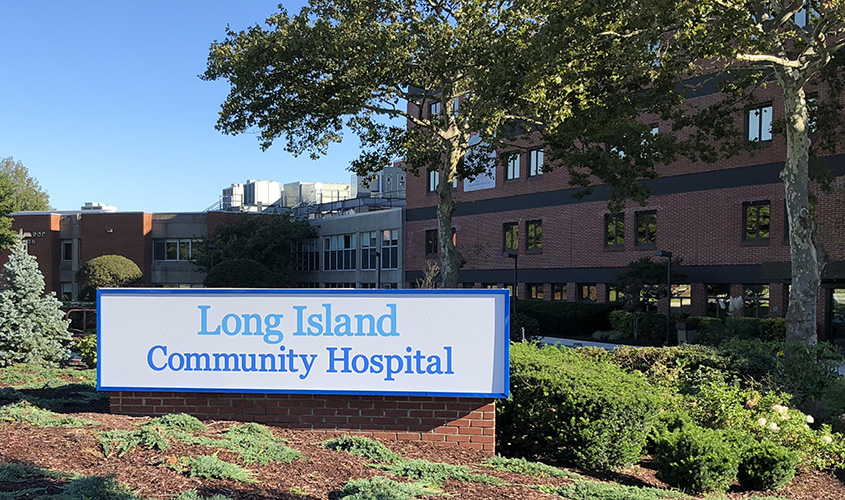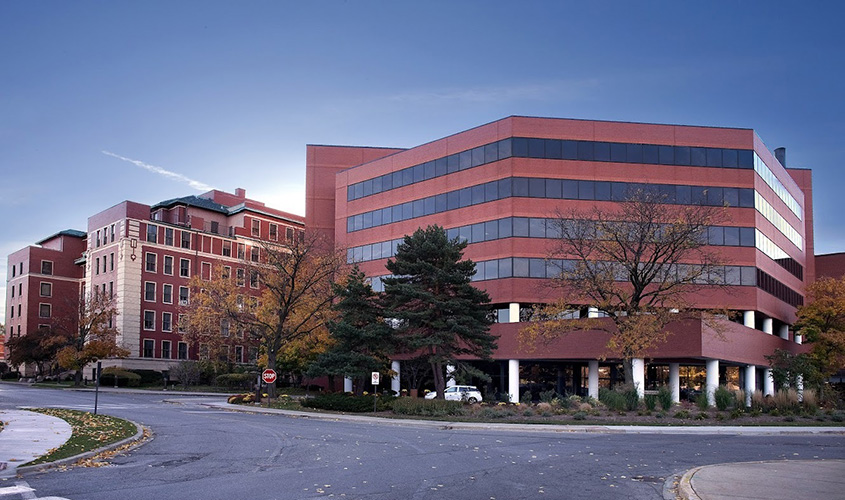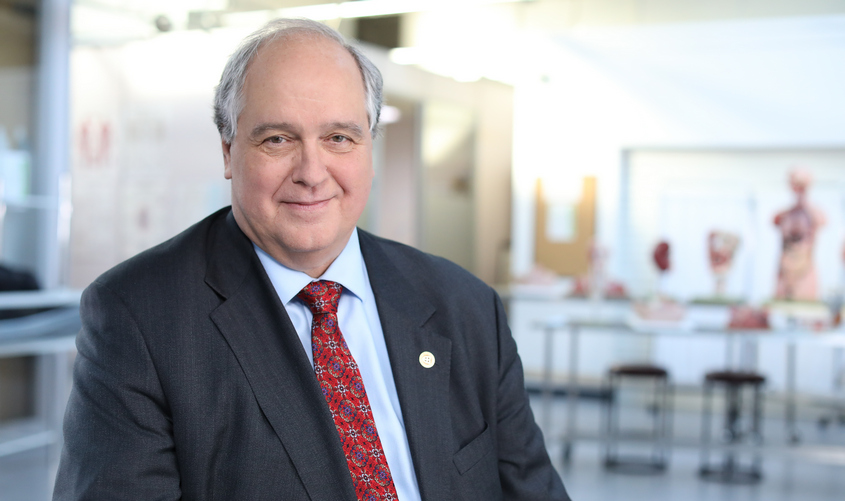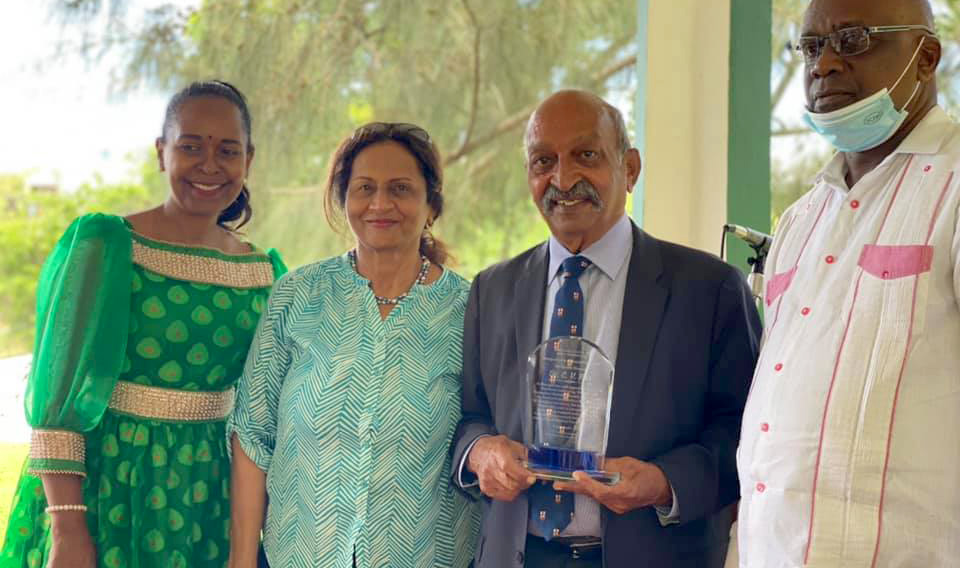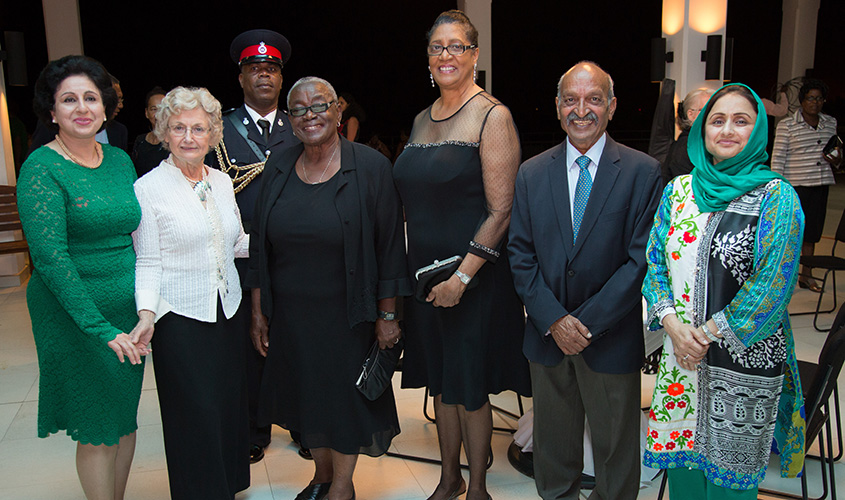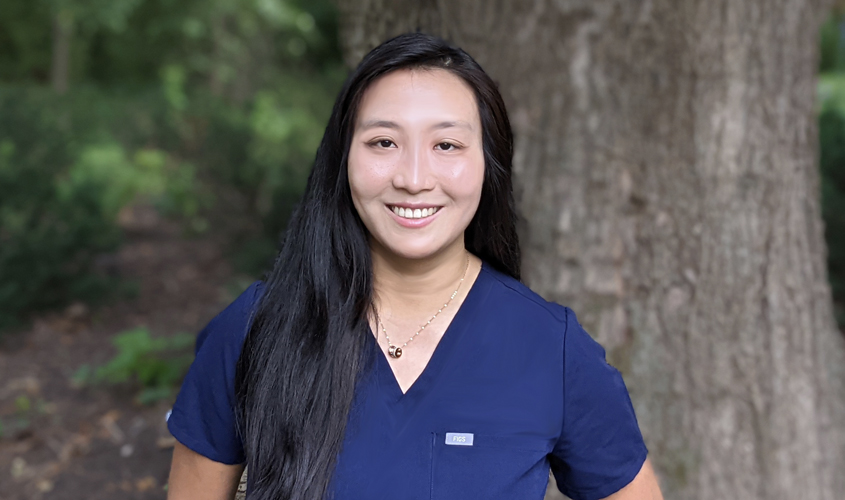
Born in Queens, NY, to Taiwanese parents, Term 5 SOM student Stephanie Chen’s journey into medicine was not at all a predictable one. After graduating with a bachelor’s degree in economics from New York University, Ms. Chen pursued several jobs in the financial industry—switching back and forth between for-profit and the non-profit sector.
Yet it soon became clear to her that being an economist wasn’t the right fit. She decided instead to wave goodbye to the East Coast and went off to pursue her graduate degree in physiology at Case Western Reserve School of Medicine in Cleveland, OH. It was in this high-energy, healthcare-driven community she found her passion for medicine, prompting her to enter St. George’s University to further explore the intricacies of how socioeconomic factors intertwined with the clinical practice of medicine.
Since joining SGU, Ms. Chen has held several positions on the Student Government Association executive board. Now as she begins her tenure as president, she shared why she chose medicine and what she hopes to accomplish in her new role with the SGA.
St. George’s University: What made you switch your career from economist to doctor?
Stephanie Chen: I quickly realized after quitting my third job in finance that my real passion involved helping people in our healthcare system. While in Cleveland, being at one of the largest healthcare hubs in the nation allowed me to see firsthand the physical, emotional, and social repercussions of the systemic challenges our healthcare industry inflicts on patients. It instilled in me the desire to make a change for those who cannot speak up.
Now, as I pursue my medical degree at SGU, I hope I can continue to think about how the clinical presentation relates to the actual person sitting in front of me, their families, and their background. My prior experience in economics has given me a broader perspective on the effect of the physician in the provision of healthcare and allowed me to appreciate the physician’s role. Every day I am learning more about the importance of advocating for my patients not just inside the doctor’s office.
“I aspire to not only be a physician who uses medical knowledge to treat the ailments of my patients but also a leader who advocates for her patients beyond the doctor’s office.”
SGU: How does it feel to be elected as SGA president for the August 2021 term?
SC: It is an incredible honor to get the chance to serve as the president of our SGU student body and to be in a leadership role where I can spark change and make a lasting difference. I couldn’t be prouder of the vision SGA holds, and I am continually inspired by all the brilliant minds I’ve met within the organization.
Being a part of the SGA has taught me that my love for humanity and advocacy can drive me even further. I aspire to not only be a physician who uses medical knowledge to treat the ailments of my patients but also a leader who advocates for her patients beyond the doctor’s office.
SGU: What prompted you to pursue this position, and what influence do you hope to have?
SC: When I first came to SGU, I knew I wanted to join an organization focused on serving others and paying it forward to the community. I saw SGA as the place I would be able to make a true impact and advocate for the entire student body. Growing up, I never saw Asian-Americans adequately represented in student councils or positions of leadership at this level. My hope is that I can influence other women of Asian descent to also strive to hold positions of power.
SGU: How did your prior SGA experience prepare you for this role?
SC: Since I first started my medical journey at SGU, I have been a member of the SGA. Following my first term, I was elected to the executive board and have served in all subsequent terms in roles such as, vice president of financial affairs, vice president of communications, president of SOM affairs, and now president of SGA.
Having exposure to a variety of roles throughout the SGA has strengthened my ability to effectively advocate for student concerns to the University administration. Over the years, I have learned so much through collaborating with my peers. Through the partnerships on many projects, I have come to foster very strong relationships with department heads, school deans, and the SGU administration.
SGU: What are some of your top priorities?
SC: As part of this year’s priorities, I aim to advocate for more effective communication, a stronger school community, and greater diversity and inclusion for the entire student body. Our plan is to utilize well-established resources to help make these priorities a reality.
Throughout the term, our executive board will be holding weekly office hours via Zoom, continuing the SGA Virtual Study Hall to promote community, and re-opening the SGA Study Buddies Locator to allow for better engagement amongst our students. We will also be holding various virtual events to promote student wellness and mental health such as the SGU Student Organization Fair and SGU Mental Health Day.
SGU: How do you plan to incorporate the concerns and issues of students from all schools?
SC: As SGA president, I check in with my executive board daily to ensure all concerns are being addressed in an effective manner. SGA also holds biweekly meetings—open to the general student body—every Monday at 7pm AST from September to November to allow for all student concerns to be raised to the executive board. As we enter this new term, I will continue to work with my team to use these established lines of communication to advocate for student concerns from all four schools at SGU.
SGU: What are the qualities of a successful leader?
SC: Being an effective communicator, having good judgment, and knowing how to delegate are essential traits for a successful leader. Besides these core attributes, I believe timing is also paramount. Knowing not only how to step in but when to step in has been crucial in unlocking some of the greatest opportunities in my life.
SGU: What are your career goals?
SC: Next spring, I will be entering into my clinical year and expect to graduate with my MD in 2024. Beyond medical school, I plan to take on the daunting task of addressing our broken healthcare system and advocating for a systems-level change in healthcare delivery to provide high quality and equitable healthcare for all.
– Ray-Donna Peters
